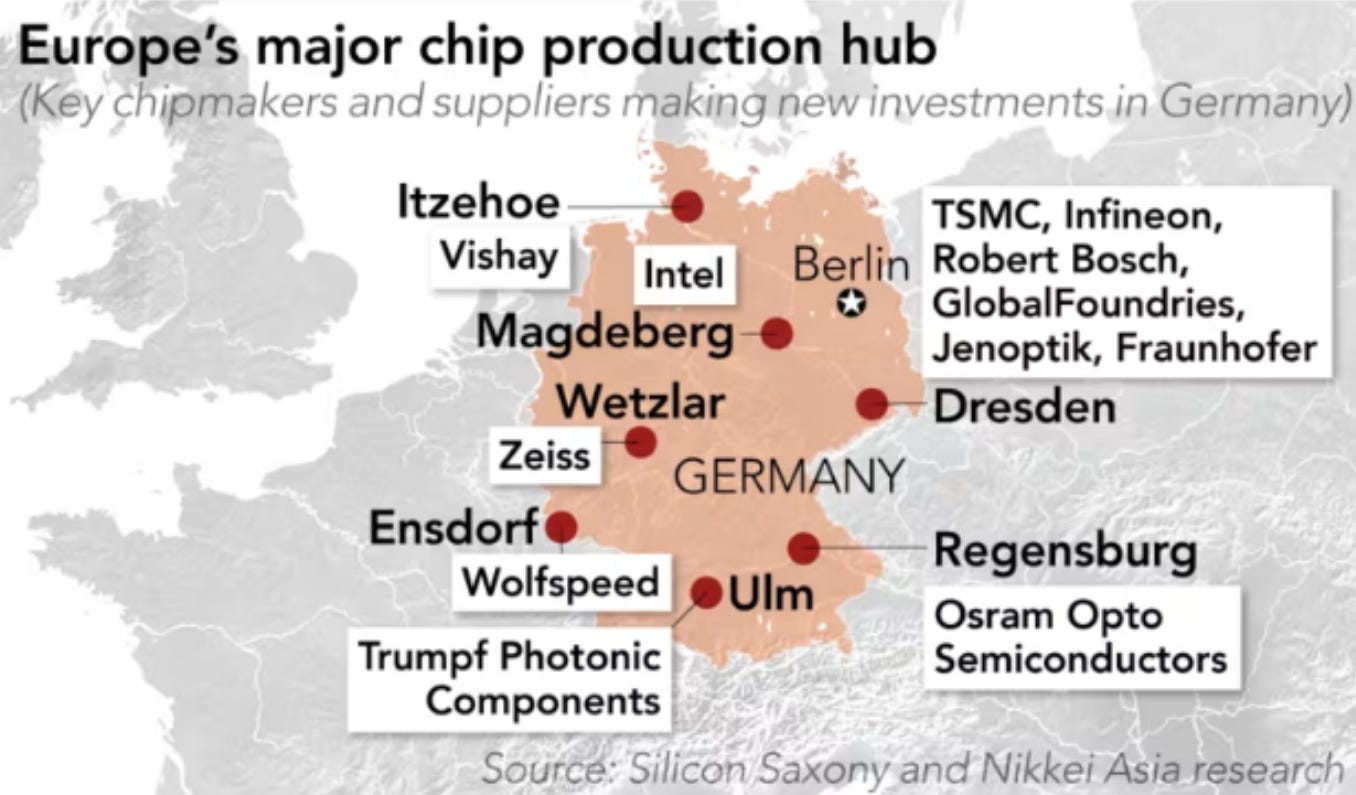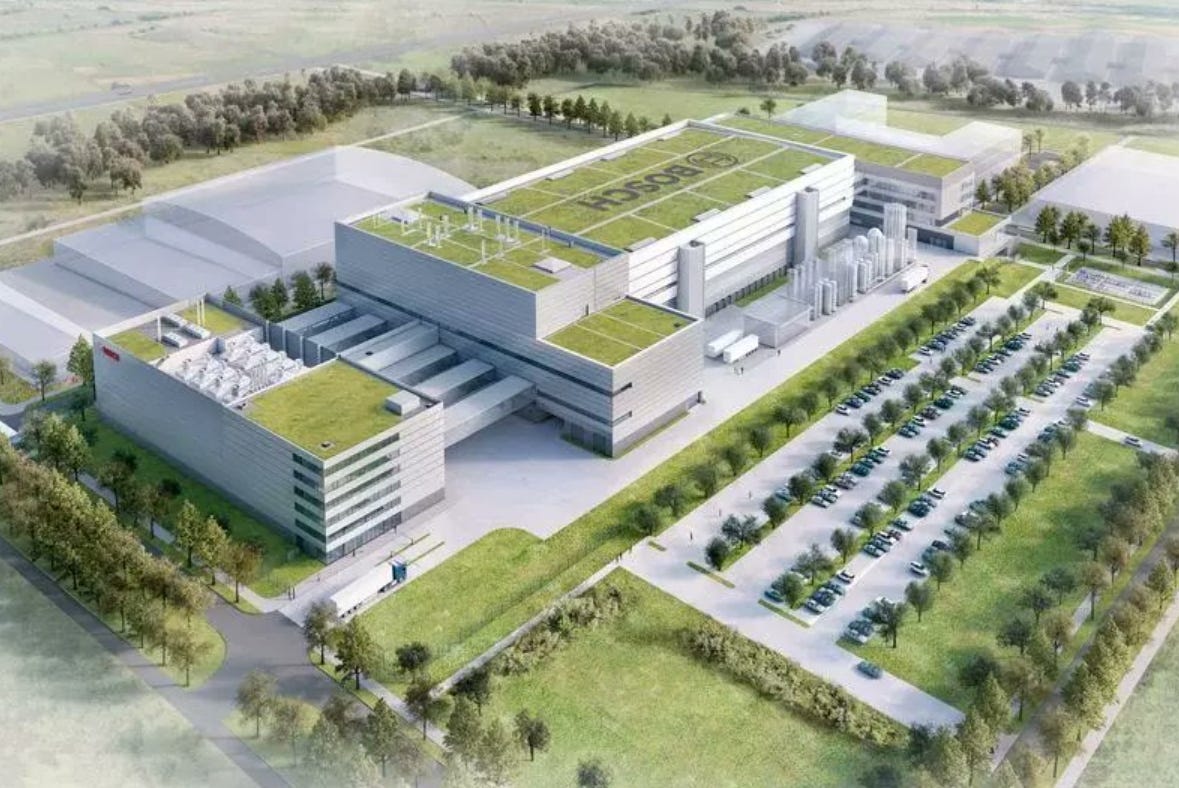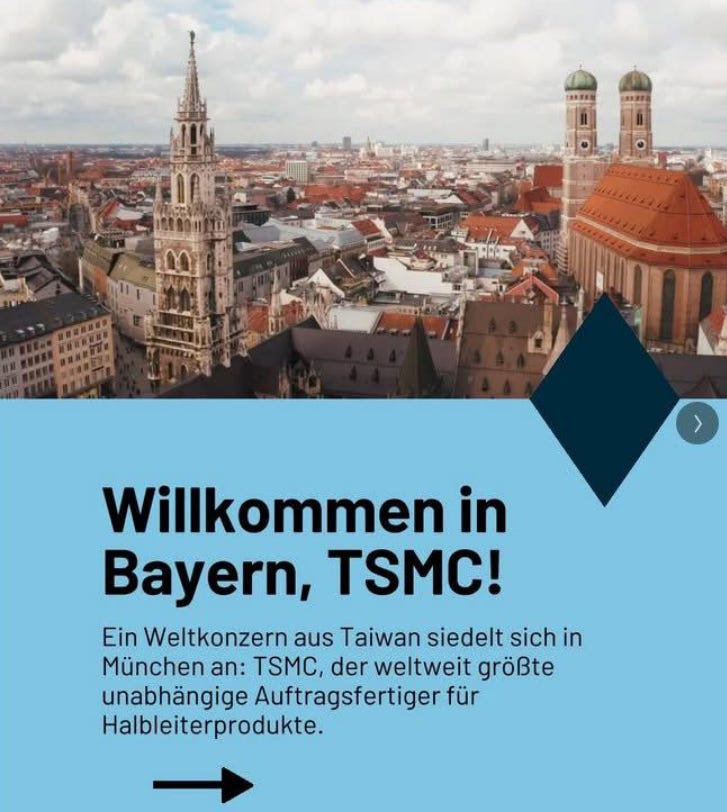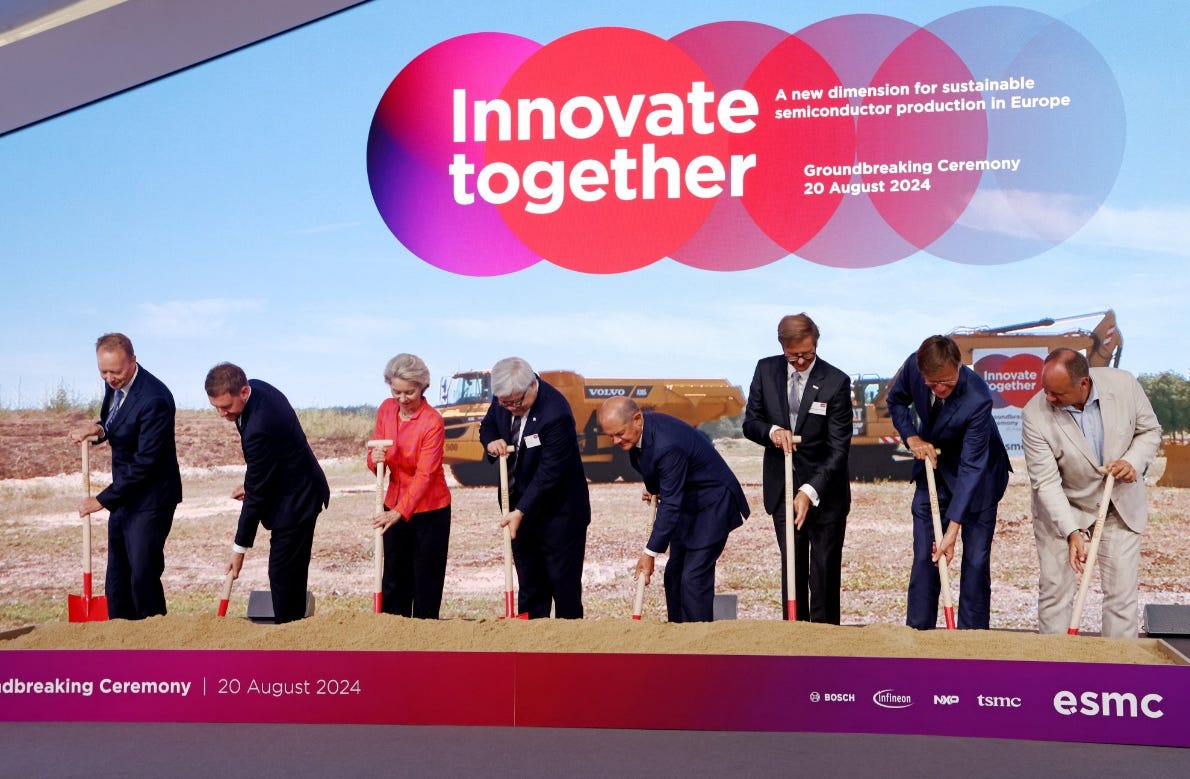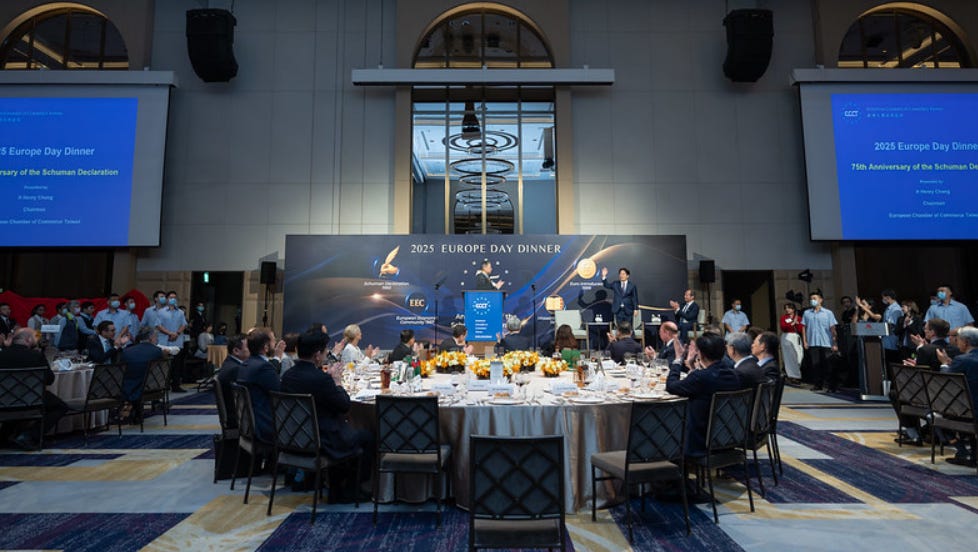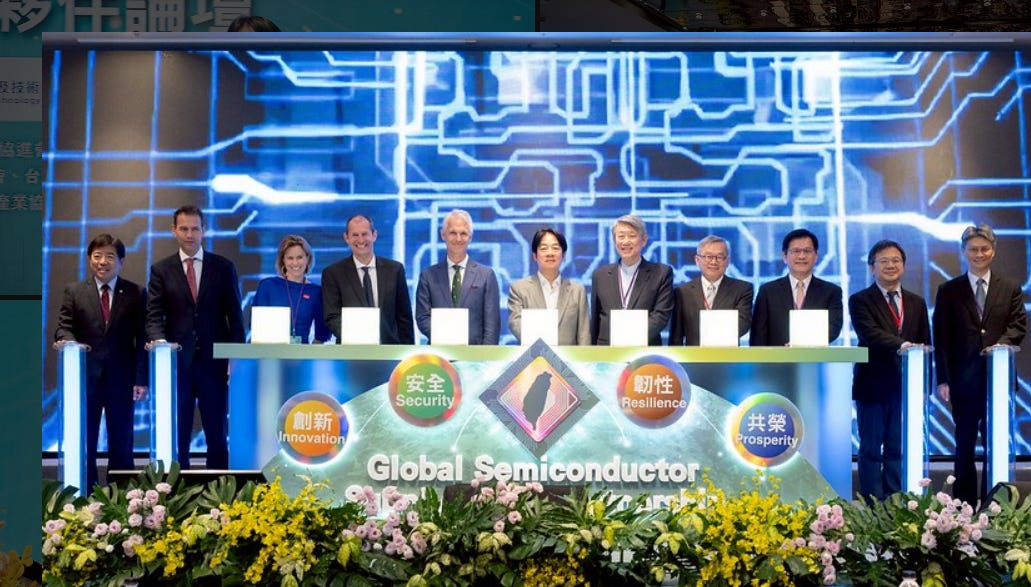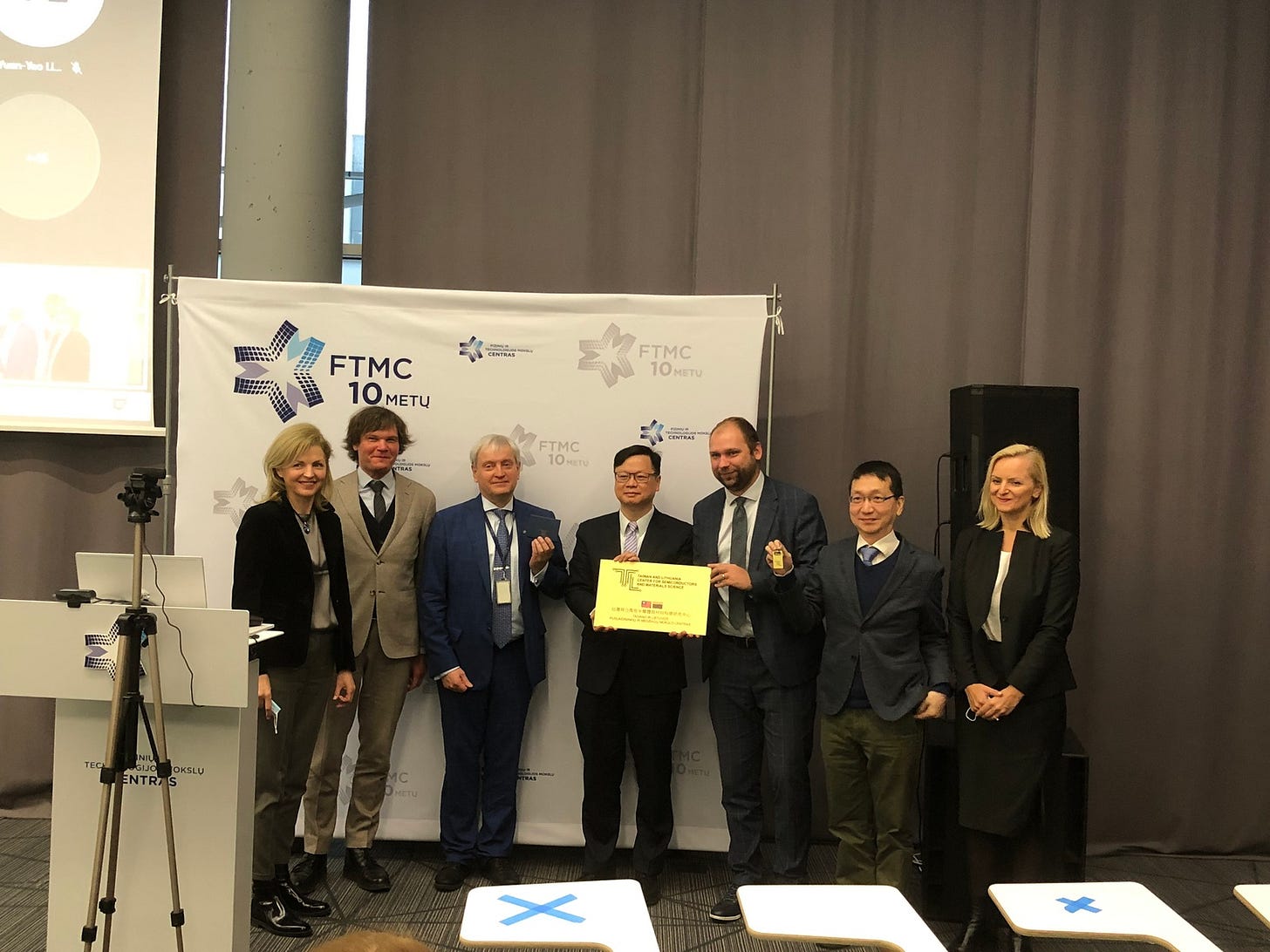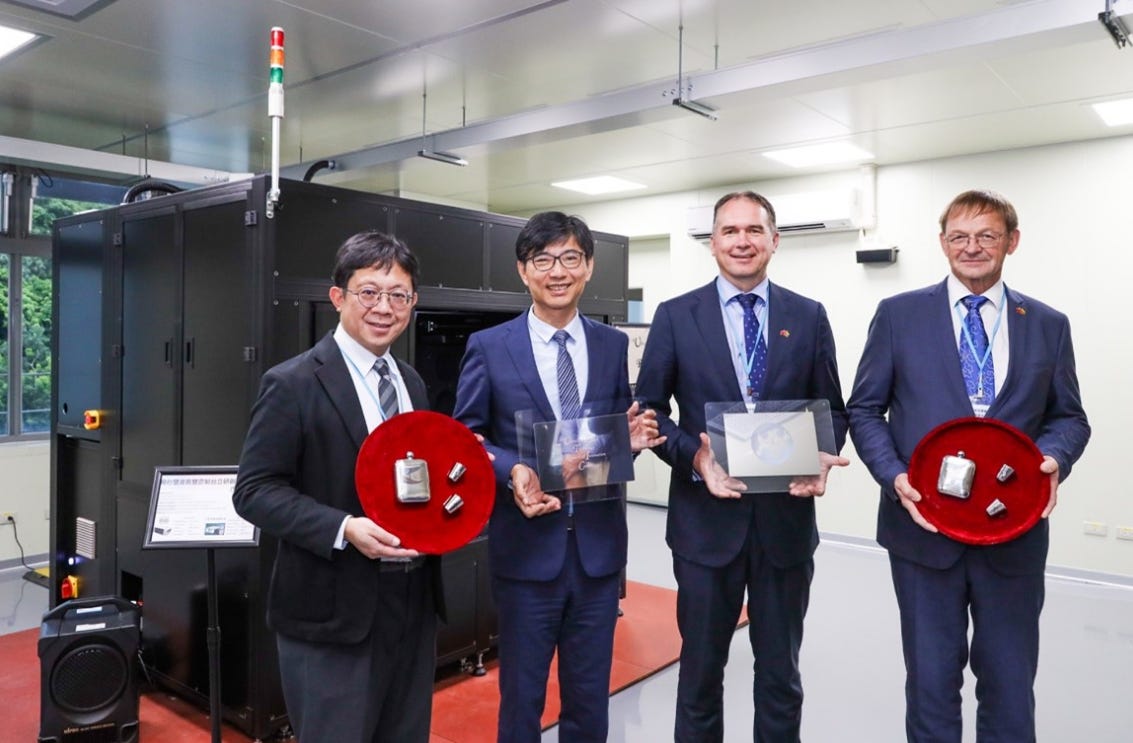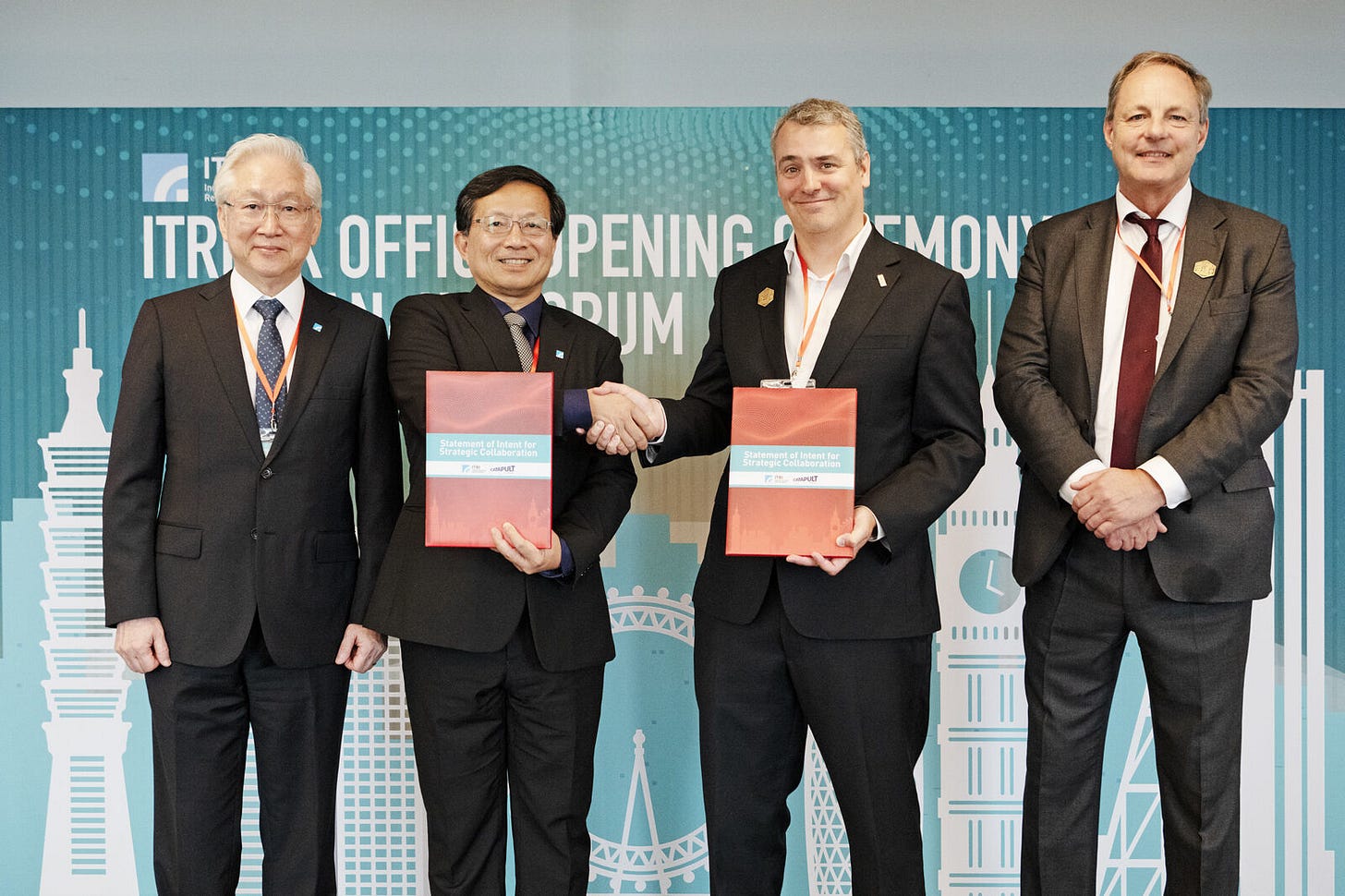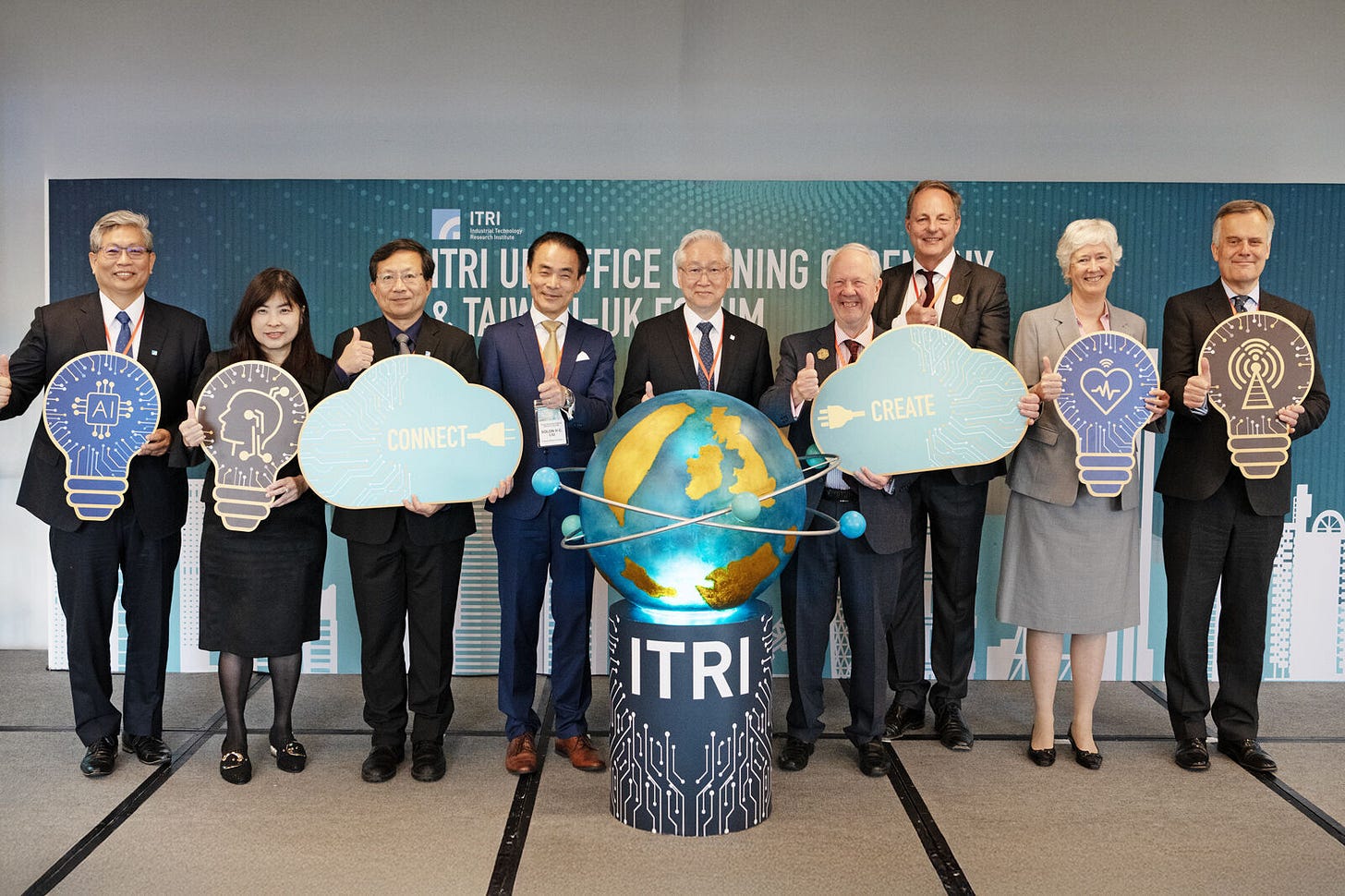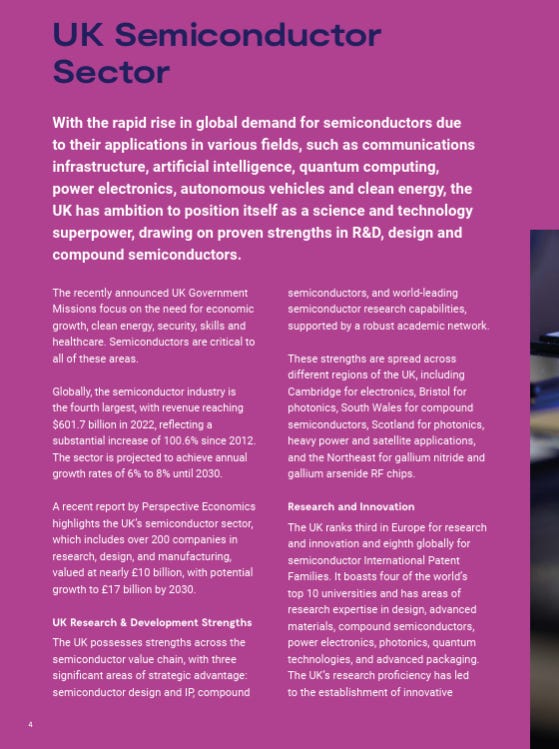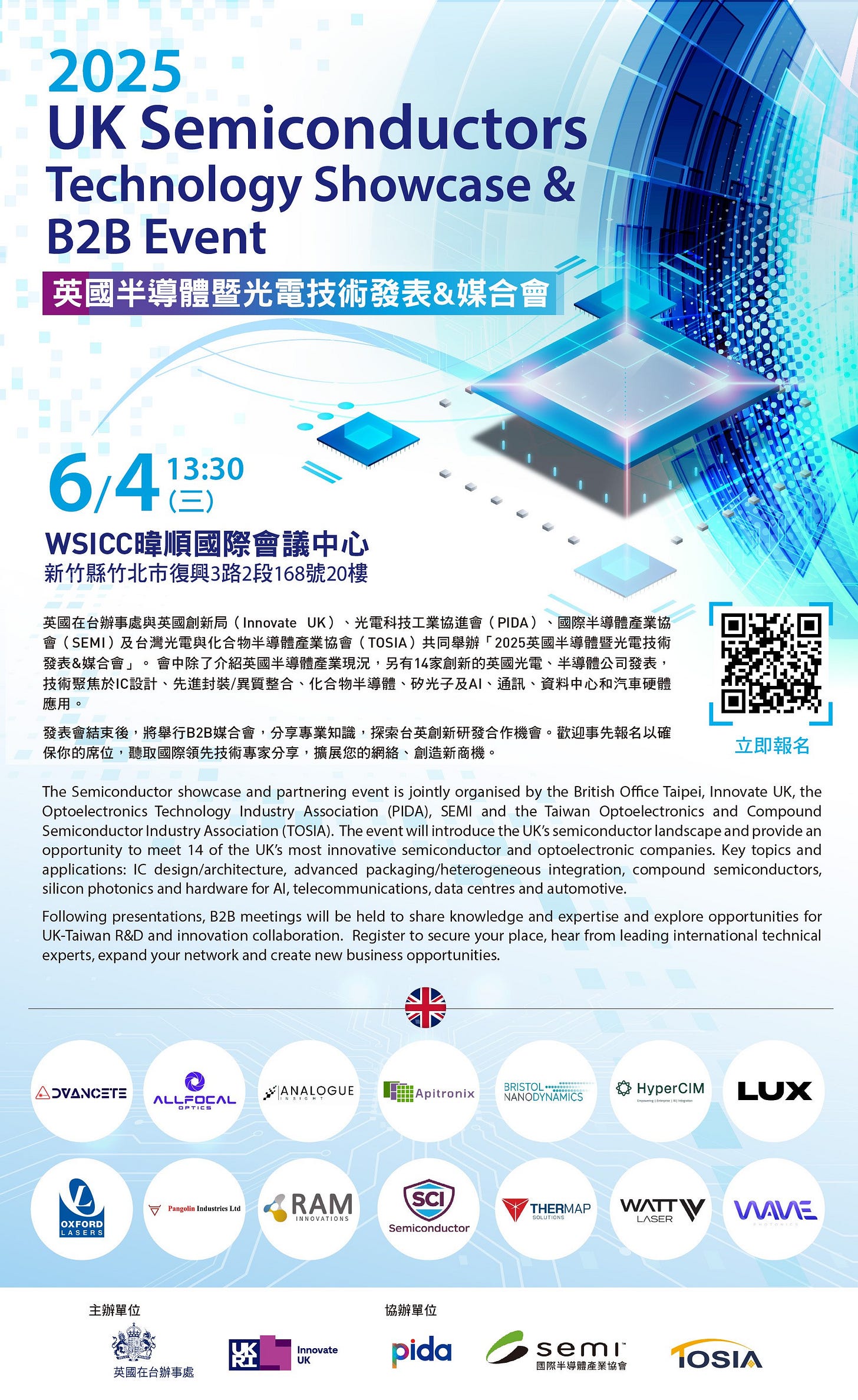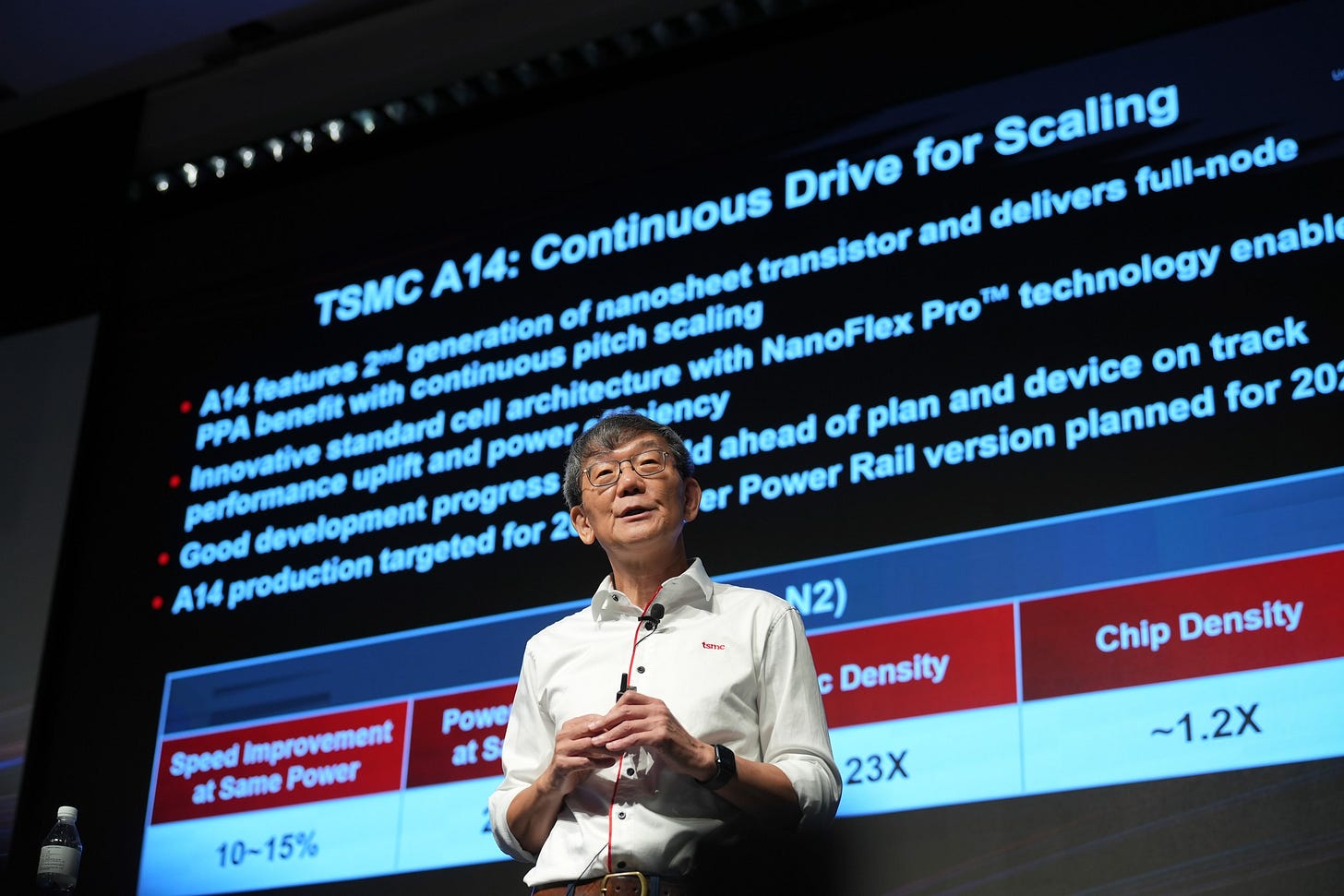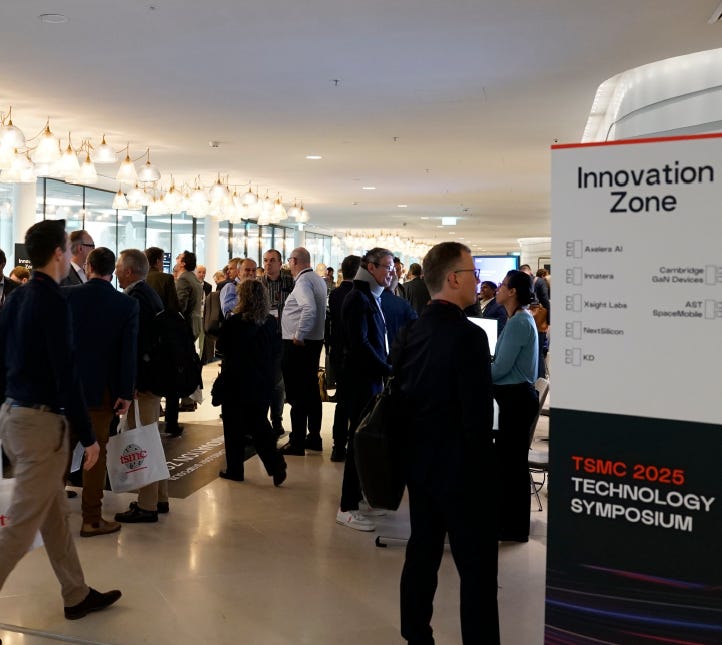TSMC’s Strategic Blueprint from a European Perspective: What Did the Tech Forum Reveal
Original Article by SemiVsion Research (ITRI , TSMC , Innovate UK)
TSMC’s Strategic Expansion in Europe: Strengthening Semiconductor Capabilities through Design and Manufacturing
Germany is rapidly emerging as a critical hub in Europe's semiconductor landscape, with several global and domestic players investing heavily in new chip production facilities. Key cities across the country are becoming strategic centers for this transformation.
In Dresden, the momentum is led by industry giants such as TSMC, Infineon, Robert Bosch, GlobalFoundries, Jenoptik, and Fraunhofer, positioning the city as one of Europe’s most concentrated semiconductor ecosystems. Meanwhile, Intel is anchoring its German expansion in Magdeberg, reinforcing its commitment to regional diversification.
Further west, Zeiss is strengthening Germany’s optical component capabilities with a presence in Wetzlar, and Vishay is expanding in Itzehoe. In the south, Wolfspeed has selected Ensdorf for its silicon carbide investments, while Trumpf Photonic Components is active in photonic device innovation. Osram Opto Semiconductors continues to lead in Regensburg, with a focus on automotive and lighting solutions.
This nationwide network of semiconductor investment reflects Germany’s ambition to boost its role in the global chip supply chain and reduce Europe’s reliance on overseas production. With coordinated public and private support, the country is transforming into a strategic powerhouse for advanced chip manufacturing and innovation.
Taiwan Semiconductor Manufacturing Company (TSMC), the world’s leading contract chipmaker, is making significant strides in Europe by establishing a comprehensive presence that encompasses both design and manufacturing sectors. This strategic expansion aligns with the European Union’s ambitions under the European Chips Act to bolster its semiconductor industry and reduce dependency on external sources.
Munich Design Center: Empowering European Innovation
In the third quarter of 2025, TSMC plans to inaugurate its first European chip design center in Munich, Germany. This facility aims to support European clients in developing high-density, high-performance, and energy-efficient chips, focusing on applications in automotive, industrial, artificial intelligence (AI), and Internet of Things (IoT) sectors. By providing localized support, TSMC seeks to enhance collaboration with European partners and streamline the design process to meet regional demands.
Dresden Manufacturing Facility: A Collaborative Endeavor
Complementing its design initiatives, TSMC is also investing in manufacturing capabilities through the European Semiconductor Manufacturing Company (ESMC), a joint venture with Bosch, Infineon, and NXP Semiconductors. Located in Dresden, Germany, the ESMC facility represents a €10 billion investment, with €5 billion in subsidies approved by the European Commission. Scheduled to commence production by the end of 2027, the plant will focus on producing chips using 22–28nm and 12–16nm process technologies, primarily serving the automotive industry. The project is expected to create approximately 2,000 jobs, contributing significantly to the local economy and Europe’s semiconductor landscape.
Aligning with the European Chips Act: Strategic Implications
TSMC’s expansion in Europe is in harmony with the objectives of the European Chips Act, which aims to increase Europe’s share of global semiconductor production to 20% by 2030. By establishing both design and manufacturing facilities, TSMC not only reinforces its commitment to the European market but also plays a pivotal role in enhancing the region’s technological sovereignty and supply chain resilience.
Taiwan–EU Semiconductor Policy and Supply Chain Collaboration
1. Economic Partnership Agreement with the European Union (Under Discussion)
On May 29, 2025, during the “2025 Europe Night” event, Taiwan President Lai Ching-te expressed Taiwan’s intent to sign an Economic Partnership Agreement (EPA) with the European Union. The proposed EPA would institutionalize bilateral trade and investment relations and further strengthen cooperation in strategic sectors such as semiconductors, artificial intelligence (AI), and green energy.
2. Global Semiconductor Supply Chain Partner Forum
On May 23, 2025, Taiwan’s Ministry of Economic Affairs (MOEA), National Development Council (NDC), National Science and Technology Council (NSTC), and Ministry of Foreign Affairs (MOFA) jointly supported the Global Semiconductor Supply Chain Partner Forum, hosted by ITRI at the Taipei International Convention Center.
The forum was themed “Innovation, Security, Resilience, and Shared Prosperity,” and focused on supply chain security, global division of labor, and technological complementarity. Taiwan reiterated its commitment to being a critical enabler in the global AI development ecosystem.
3. Taiwan–Czech Republic Semiconductor Collaboration
In September 2024, Taiwan and the Czech Republic jointly announced the establishment of the Taiwan–Czech Semiconductor and Materials Science Center, co-managed by National Chengchi University and Charles University. The center focuses on semiconductor supply chain research and academic-industry collaboration.
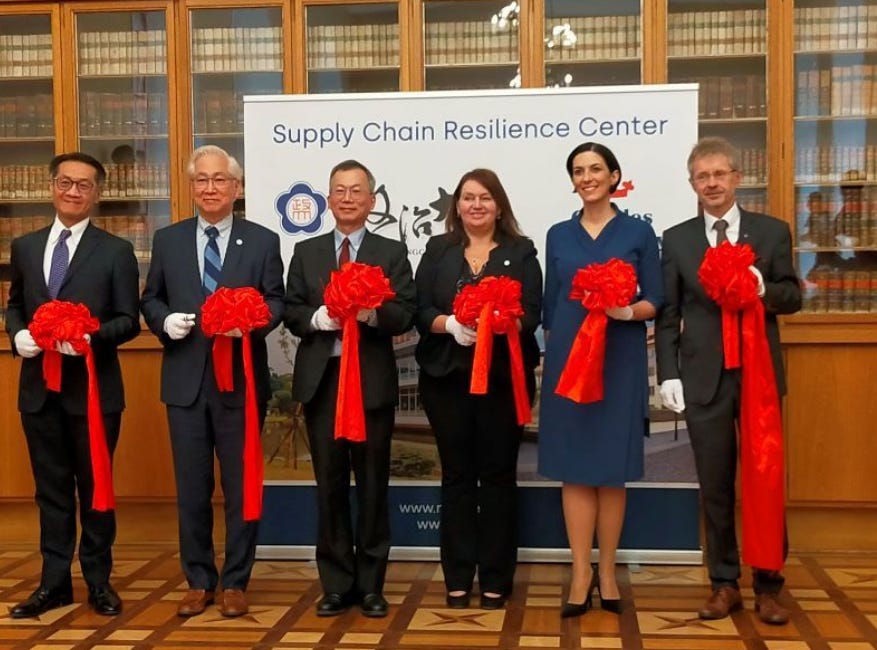
Further advancing this partnership, Taiwan’s Minister of Economic Affairs, Wang Mei-hua, visited the Czech Republic in December 2024, promoting industrial cooperation and witnessing the signing of a memorandum to establish a Trade and Investment Service Center in Prague.
Taiwan–Lithuania Technology Cooperation
Taiwan and Lithuania have established deep cooperation in semiconductors and laser technologies:
In February 2022, National Sun Yat-sen University and Lithuania’s Center for Physical Sciences and Technology (FTMC) launched the Taiwan–Lithuania Semiconductor and Materials Science Center, leveraging Taiwan’s crystal technology and Lithuania’s laser expertise. News Link
In September 2023, ITRI signed a memorandum of understanding with the Lithuanian Laser Association, leading to the establishment of the Ultrafast Laser Innovation Center in Tainan, Taiwan. The center introduced Lithuanian femtosecond laser sources, aiming to support advanced manufacturing in optoelectronics, medical devices, and telecommunications. News Link
ITRI Strengthens Taiwan–UK Technology Alliance Across Semiconductors, AI, Quantum, and Net-Zero Fields
As Taiwan’s leading applied research institute, the Industrial Technology Research Institute (ITRI) continues to deepen its collaboration with the United Kingdom across several strategic technology domains, including semiconductors, quantum technologies, 6G communications, net-zero solutions, AI, biomedical innovation, and smart manufacturing.
ITRI Opens UK Office in London
On May 28, 2025, ITRI officially launched its UK office in London, marking its fifth international location following the United States, Japan, Germany, and Southeast Asia. This office will serve as a strategic innovation bridge to strengthen bilateral R&D and commercial collaboration in:
6G communication technologies
Quantum computing and systems
Net-zero carbon and sustainable solutions
Artificial intelligence and smart manufacturing
Biomedical and healthcare innovation
The same day, the Taiwan–UK Innovation Forum was held, drawing over 100 participants from UK industry, government, and academia. The event underscored the mutual commitment to deepening technological partnerships between the two regions.
In parallel, Innovate UK, the UK’s national innovation agency, is also jointly advancing the Taiwan–UK Collaborative R&D Programme alongside Taiwan’s Ministry of Economic Affairs. This program supports bilateral R&D across semiconductors, ICT, and emerging technologies.
Strategic Partnership with Catapult Network
During the office inauguration, ITRI signed a Statement of Strategic Intent with the UK Catapult Network, expanding upon previous collaborations:
With CSA Catapult: Development of GaN-based RF and power semiconductor technologies
With ORE Catapult: Joint research on offshore wind technologies
The new agreement paves the way for broader and deeper cooperation in frontier technologies, semiconductor R&D, and decarbonization, with an emphasis on accelerating technology commercialization and market deployment.
Key Collaborations in the Semiconductor Domain
ITRI and UK partners have made substantial progress in the following areas:
Compound Semiconductors
Since 2020, ITRI has partnered with CSA Catapult to develop gallium nitride (GaN) technologies for high-frequency wireless communication systems.
Advanced Packaging and Pilot Lines
ITRI has assisted the UK in evaluating and setting up advanced packaging pilot lines, linking British semiconductor design houses with Taiwan’s world-leading foundry and packaging supply chain. This supports efforts to enhance local manufacturing resilience.
Joint Development with Oxford Instruments
ITRI and Oxford Instruments have established long-term cooperation in fields such as high-brightness LEDs (HBLEDs), MEMS, Micro LED displays, silicon photonics, and nanoscale metrology, jointly advancing commercialization efforts in semiconductor technologies.
2025 UK Semiconductors Technology Showcase & B2B Event
This event is jointly organized by the British Office Taipei, Innovate UK, the Photonics Industry & Technology Development Association (PIDA), the international semiconductor association SEMI, and the Taiwan Optoelectronic & Semiconductor Industry Association (TOSIA). The event will present an overview of the UK semiconductor industry, followed by presentations from 14 innovative UK companies in the fields of photonics and semiconductors. The topics will focus on IC design, advanced packaging/heterogeneous integration, compound semiconductors, silicon photonics, and hardware applications in AI, communications, data centers, and automotive sectors. A B2B matchmaking session will be held afterward
1. Advancete
Founded in 2016, Advancete Limited is pioneering applied laser solutions for advanced manufacturing, transforming the way thick and brittle semiconductor wafers are diced and drilled.
2. AllFocal Optics
AllFocal Optics is revolutionising AR/VR display technology with its proprietary nanophotonic lens, an ultra-thin, high-performance lightguides that address one of extended reality’s core challenges: the Vergence-Accommodation Conflict (VAC).
3. Analogue Insight
Founded in 2024 by a highly experienced team with backgrounds in leading global corporations, Analogue Insight is a fabless semiconductor company specialising in high-performance analogue and mixed-signal design, developing both standard and custom IP solutions tailored for advanced System-on-a-Chip (SoC) and Chiplet applications.
4. Apitronix
Formed following working with leading automotive companies Volvo, BMW and Bosch, Apitronix is commercialising a new class of processor that delivers 60x usable real-time performance, overcoming rising costs and time-to-market challenges faced by OEMs and Tier 1 suppliers.
5. Bristol Nano Dynamics
Bristol Nano Dynamics (BND) has developed a world-leading metrology technology capable of imaging nanoscale structures at unprecedented speeds. A spin-out from the University of Bristol, the company has been trading since 2015.
6. HyperCIM
Founded in 2023, HyperCIM is rearchitecting enterprise infrastructure to deliver real-time AI at scale. In sectors where milliseconds mean millions; finance, e-commerce, gaming, and telecommunications, the company’s compute-in-memory technology eliminates latency bottlenecks instantly transforming data into AI-ready formats.
7. LUX Industries
Oxford-based clean energy company, LUX Industries (LUX) is pioneering Hydrogen-as-a-Service (HaaS).
8. Oxford Lasers
With almost 50 years of lasers, optics and industry experience, Oxford Lasers is a global leader in high-precision laser micromachining.
9. Pangolin Industries Ltd
Established in 2020, Pangolin Industries is an agile, fabless photonic manufacturer specialising in the design and manufacturing of photonics technologies.
10. RAM Innovations
RAM Innovations is a UK leader in heterogeneous PCB-embedded diepackaging, specialising in advanced techniques for wide band gap (WBG) semiconductors used in power applications.
11. SCI Semiconductor
Founded in 2023, SCI Semiconductor is a fabless chip vendor developing devices and critical IP for inherently secure applications leveraging CHERI (Capability Hardware Enhanced RISC Instruction) technology.
12. TherMap Solutions
A University of Bristol spin-out, TherMap Solutions designs and manufactures advanced laser-based thermal characterisation instrumentation, enabling accurate and reliable measurements of critical thermal properties.
13. Watt Laser
Specialising in the development of advanced laser processes and highprecision laser systems, Watt Laser is pushing the boundaries of industrial laser applications.
14. Wave Photonics
Wave Photonics is advancing photonic integrated circuit (PIC) design technology to accelerate the mass production and adoption of integrated photonics.
Strategic Significance
These collaborations underscore a deepening strategic partnership between Taiwan and the United Kingdom in semiconductors, green technology, and key enabling innovations. Beyond technological exchange, these joint efforts are expected to enhance UK industrial resilience, bolster supply chain security, and position Taiwan as a central contributor to global tech ecosystems.
Through these strategic initiatives, TSMC is poised to become an integral part of Europe’s semiconductor ecosystem, fostering innovation and supporting the continent’s aspirations for technological autonomy.
How TSMC Balances Process Innovation and Cost to Meet Diverse Customer Needs
In a recent discussion, TSMC Senior Vice President Dr. Kevin Zhang emphasized that continued technology scaling remains central to TSMC’s strategy, but with a broader interpretation of Moore’s Law—one that now includes 3D integration, system-level co-design, and advanced packaging.
To meet the increasingly diversified needs of its customers while maintaining manufacturing efficiency, TSMC adopts a multi-pronged strategy:
1. Combining Major Node Breakthroughs with Incremental Enhancements
2. Providing Flexible Technology Options Per Application Needs
3. Deep Collaboration with Customers
4. Leveraging Advanced Integration: CoWoS, SoW, and Silicon Photonics
5. Cost-Aware Innovation Through EUV and Global Manufacturing Efficiency
TSMC balances process innovation and cost through:
A dual-path strategy of breakthrough + incremental node scaling.
Optional technology features like BPR to provide customer-level flexibility.
Close design collaboration through DTCO tools like FinFlex/NanoFlex.
Advanced packaging and interconnects (CoWoS, SoIC, photonics) to move scaling into the third dimension.
Efficient, globally distributed manufacturing, leveraging EUV for cost-effective scaling.
This approach ensures that cutting-edge innovation is accessible, customizable, and aligned with the unique technical and business goals of TSMC’s diverse global customers.
For Paid Members, SemiVision will discuss topics on
How TSMC Balances Process Innovation and Cost to Meet Diverse Customer Needs
TSMC A16: Production Timeline and Key Innovation Overview
How NanoFlex Works: TSMC’s Design Innovation for 2nm Era
TSMC’s CoWoS Capacity Expansion Amid Surging AI Demand
Beyond Silicon: TSMC’s Strategic Blueprint for Advanced System Integration
TSMC’s CoWoS Technology Advancements: Powering the AI Acceleration Era
System on Wafer (SoW): A Revolutionary Leap in System-Level Integration
Optical Signal Integration into Advanced Packaging: TSMC’s Vision for Next-Gen System Architecture
TSMC's Global Production Footprint: Progress and Plans for Overseas Expansion



